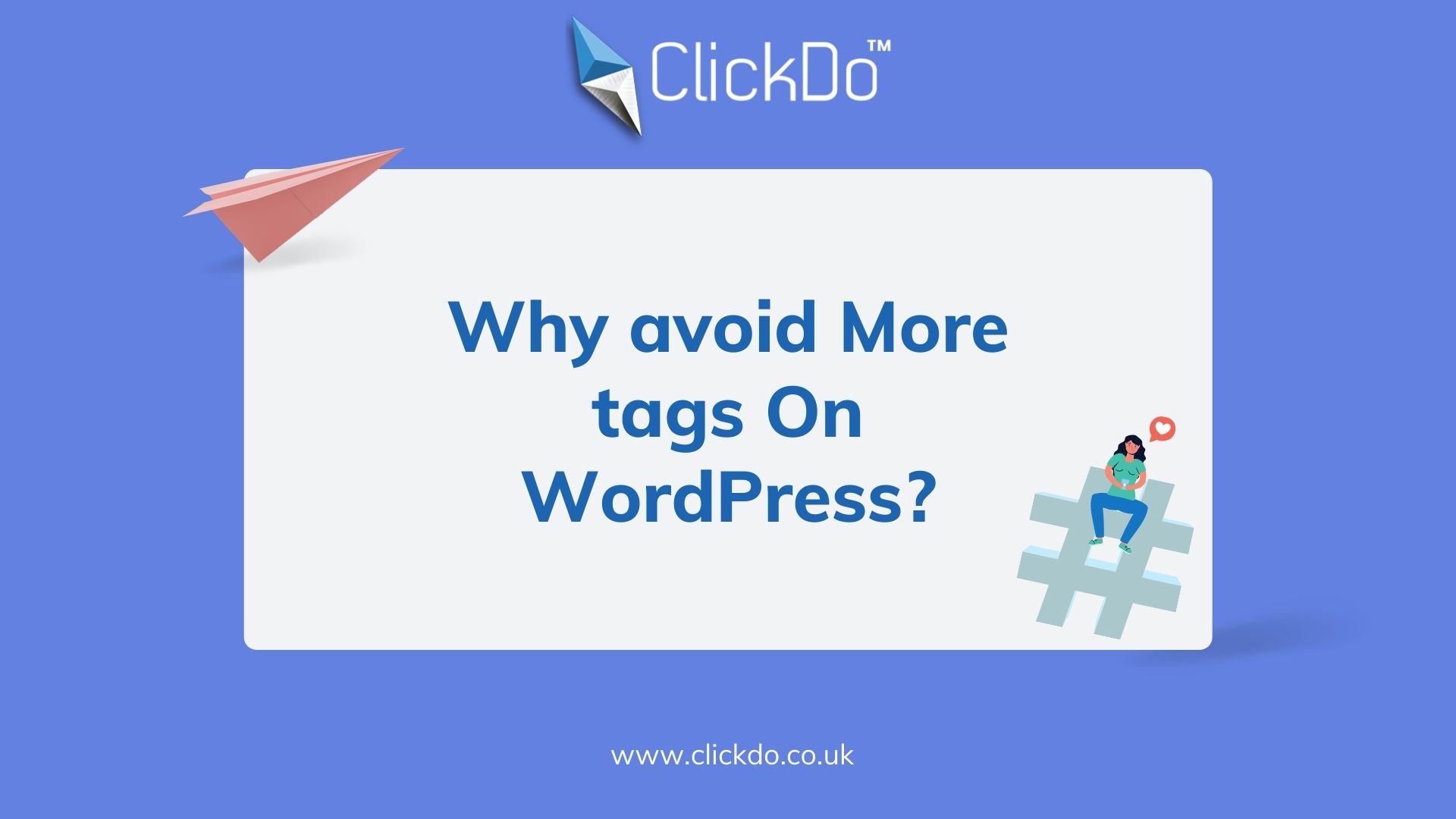Why avoid More tags On WordPress?

We all know tags are more popular on social media platforms than too mainly on Instagram. People add more tags to their posts to create more visibility to their profiles. But it when comes to WordPress adding more tags will devasting your rankings and SEO works. If you are also the one who adding more tags to your WordPress site, then the blog is for you. Here we clearly explain how tags work, how to use tags in the right way, and why using so many tags damages your rankings in detail.
What are Tags In WordPress Site?
In WordPress, tags are used to categorize your posts and to find the articles easily from the bunch of posts. In simple terms, the tags in WordPress are like a category. Tags you have added in WordPress created a new page called tag page. Articles that come under the same tag will be listed there on that tag page.
Do WordPress tags helps SEO?
Really no. This is just a waste of time. Adding tags on WordPress does not give any benefit to your WordPress site. This simply gives a poor user experience. So, every tag that you are adding to your WordPress site will create a new page to your site, and therefore the content on that page will be very less. It only contains links that you have used to tag your post.
Why avoid so many tags?
Every tag you have added to your post is eventually considered as the fresh page that Google needs to crawl. This makes the crawling process more difficult, and it gives the worst experience if the page tag contains very little content.
Google really consider these pages as spams ad this will get reflects in your page rankings. Even if your post contains High-quality content and having more tag pages, then this will be a major drawback for your website growth and rankings. Google really hates this, and your ranking position will drop automatically if you use too many tags.
How to use tags on your WordPress site?
Try to use a limited number of tags for your posts. For example, consider your tags as a closet and your posts as a piece of clothing. The closet is to put your clothes and it will give clean look for your room. same time, having a greater number of closets than your clothes end up with empty closets. So, no one likes to have an empty closet that fills up the room space. Same as having too many tags are consider as closets that occupy the empty space. So, if you have 90 posts on your WordPress site, limit the tags to 30 numbers. That means always try to keep your tags to your post in the ratio of 1:3. For a good response and page ranking.
You may ask, why Instagram alone needs more tags to reach more users? The reason is people on Instagram reach your business through Instagram tags. They used the Instagram tags to search through your posts and at the same time, they used the same tag to search billions of other user’s posts on the Instagram platform. So, it adds sense to add more tags for Instagram posts that group other people’s posts under the same category.
But tags on your WordPress posts are within your website, it does not make any sense to use such tags as you use on Instagram. If you use such tags, then it will be tough to find your posts on Google.
How to clean up the tags pages if you have added too many tags?
If you have added too many tags to your website, you will need to get rid of these negative pages by deleting them or redirecting them. If there is only one post for a tag, then redirect that tag page to that blog post. This is a great way to reduce the number of tag pages. If you have more blog posts, then you need to work more to redirect those tag pages to each blog. But you should need to clean those tag pages to keep your rank-up. Deleting and redirecting are two ways to clean up your tag pages.
Author Profile
- Jr. SEO Consultant, Blogger, & Content Specialist. Passion for writing in SEO, Digital Marketing & Tech-related Niches.
Latest entries
 Link BuildingNovember 3, 2021Local Link Building Tactics for your Business
Link BuildingNovember 3, 2021Local Link Building Tactics for your Business  Content MarketingOctober 26, 2021Top 8 Benefits of Content Marketing
Content MarketingOctober 26, 2021Top 8 Benefits of Content Marketing Social MediaOctober 23, 20215 Reasons Why you Need a Social Media Manager
Social MediaOctober 23, 20215 Reasons Why you Need a Social Media Manager Content MarketingOctober 21, 2021How to Create a Winning Blog Content Strategy?
Content MarketingOctober 21, 2021How to Create a Winning Blog Content Strategy?




